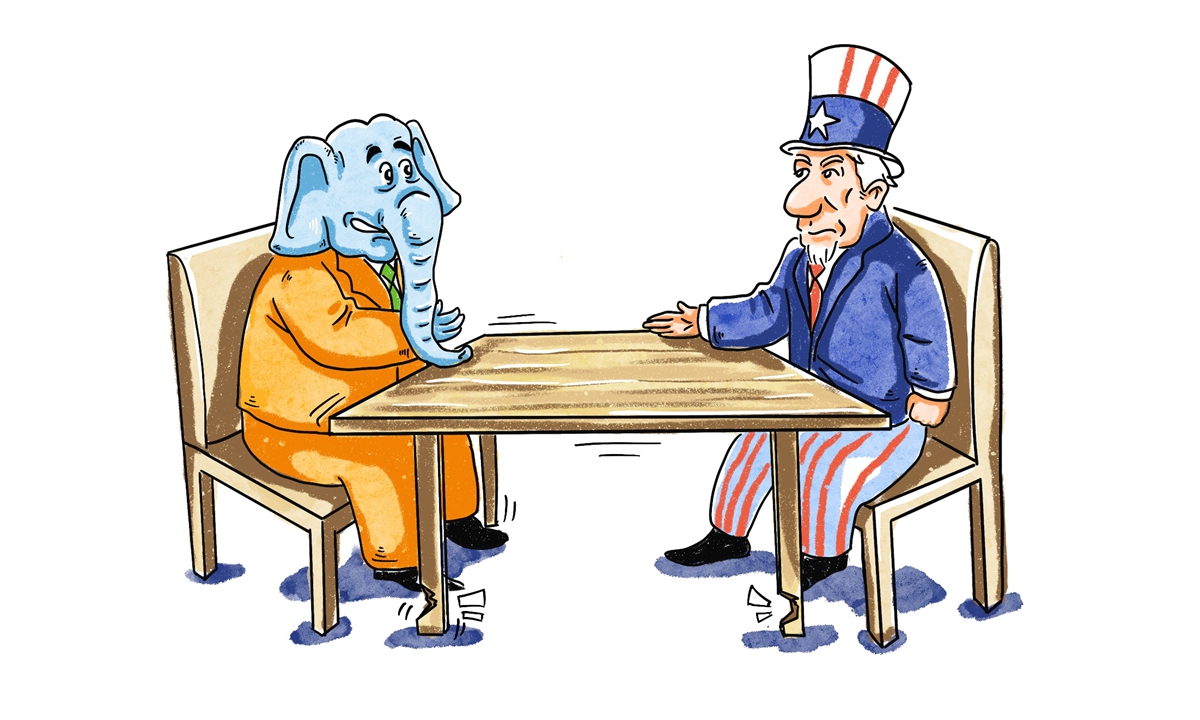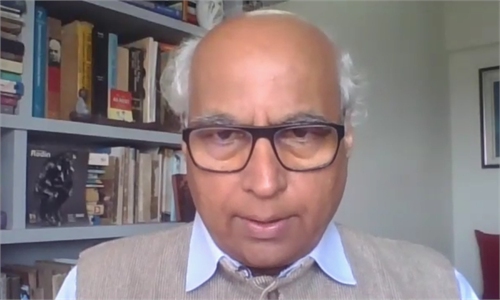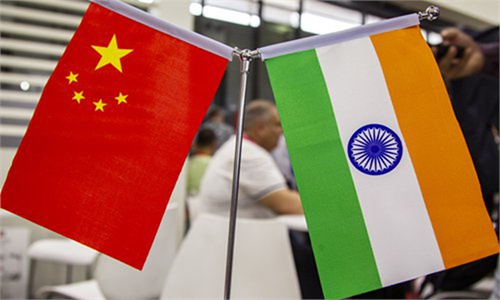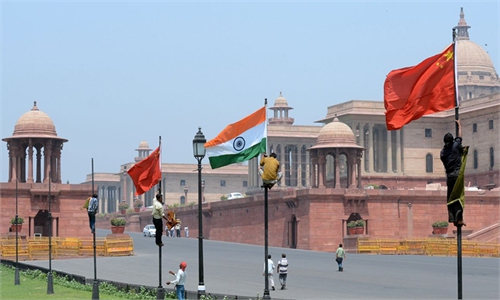COMMENTS / EXPERT ASSESSMENT
India-US trade slump shows decoupling with China impractical

Illustration: Tang Tengfei/GT
India has seen a drastic slump in trade with the US after months of lockdown due to the COVID-19 pandemic. With both countries speeding along the path to higher numbers of infections, bilateral trade - as well as India's fragile economy - may continue to endure grim prospects.
Trade between India and the US declined 61 percent year-on-year in May, recording the deepest drop among all US trading partners, according to a Forbes report. India has also surpassed Russia to become the country with the third highest number of infections globally. The US continues to top the list, approaching 3 million cases on Tuesday.
India has been generally following in the US' steps as it tries to seize gains from the conflict between China and the US. After its recent border clash with China, India has heated up its nationalism in economic areas, banning Chinese apps and rolling out extra inspections for containers from China, among other measures.
The nation is rushing to join the US' clique and decouple from China, wishfully aiming to receive industrial relocations from China. That is not a realistic campaign for India due to its insufficient infrastructure in terms of both software and hardware facilities. And although the Indo-Pacific strategy has been enhanced since the pandemic, India may gradually realize that it cannot harvest significant benefits from the defense and security framework.
There have been recent signals of easing tensions following the border clash between China and India. Chinese State Councilor and Foreign Minister Wang Yi held a phone conversation with Indian National Security Advisor Ajit Doval on Sunday, during which the two sides reached a positive consensus on the border dispute.
However, it seems that cooling India's economic nationalism is a more difficult task than expected. Indian officials reportedly claimed that India remains firm on its decision not to join the Regional Comprehensive Economic Partnership (RCEP) due to the recent border dispute with China, and the country has chosen to stay out of all free trade agreements involving China. That would be a path of self-destruction for India in the long run.
China is India's second-largest trade partner and maintains a large trade surplus with the country. Cost-effective products made in China have high advantages in the Indian market. For instance, Chinese-branded appliances and smartphones maintain high market shares. It will not be easy for India to find substitutes in the global market.
India's years of hesitation toward the RCEP are essentially due to the country's weak manufacturing sector. It has seen rapidly increasing imports from RCEP countries in recent years, but has recorded barely increasing exports to those countries. Its trade deficits continue to expand, and will grow larger if it joins the framework.
But distancing itself from the RCEP will inevitably cost India its opportunity to integrate with Asia-Pacific economic entities, and will subsequently block its long-term economic development.
As a large growing economy, India should thoroughly assess its status in Asia as well as in the world, and its long-term national interests. When facing a more powerful neighbor, it is critical for India to properly assess its situation and rationally reduce its rivalry toward China to develop favorable economic and diplomatic strategies, rather than irrationally heating up nationalism.
The author is a research fellow at Fudan University's Center for South Asian Studies. bizopinion@globaltimes.com.cn



